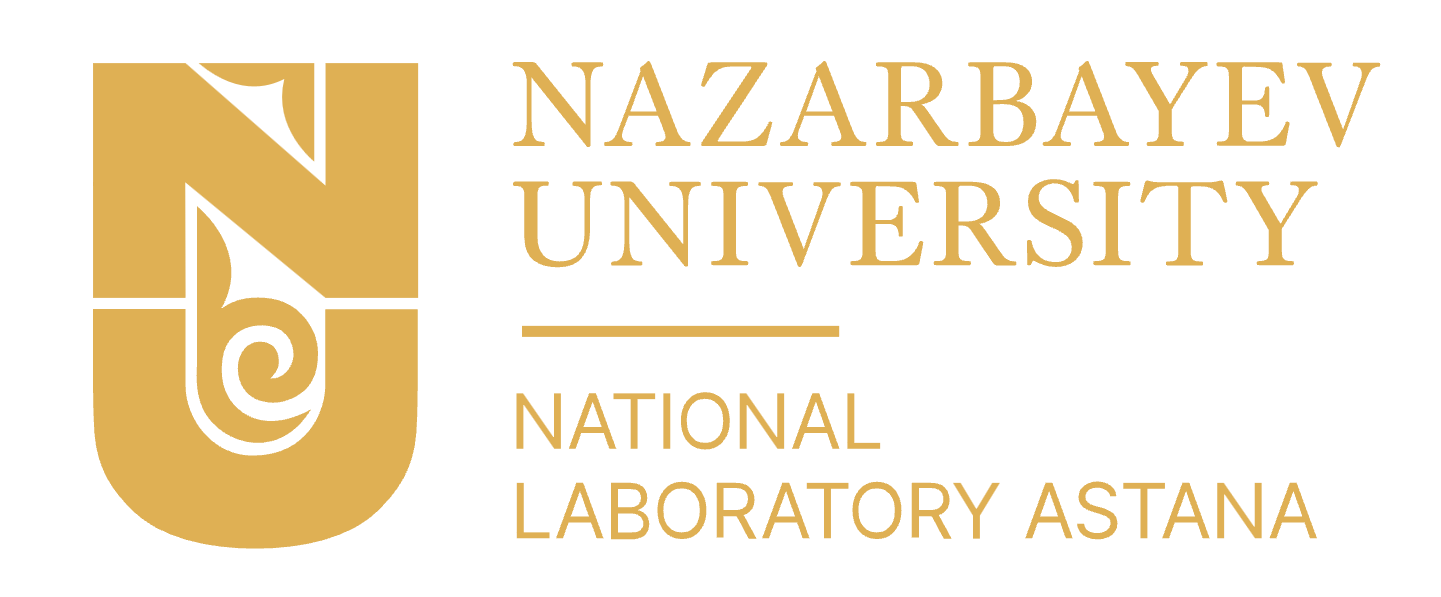Optimization of the therapy targeting aggressive cancers by the D-VC drug combination developed in Kazakhstan.
BR24992841
The action of the drug is based on targeted chemotherapy. Our studies have shown that the stereoisomer of vitamin C (D-VC) is more effective and less toxic. The second component of the drug, ATO, enhances oxidative stress and leads to a cytotoxic effect selectively in cancer cells. A developed drug combination induces a cytotoxic oxidative stress in cancer cells mediated by the active uptake of glucose by these cells. Initially, the program was focused on suppressing malignant KRAS mutant cancers, which are known to actively consume glucose, but it is a common feature of many malignant cancers. Determining the types of cancers most sensitive to the combination of ATO and D-VC will be an important goal of this project and the genomic profiling of tumors will be most informative. Tumors are highly heterogeneous and identifying the most critical driver mutations will be instrumental in defining the types of cancers During clinical trials, a genomic profiling will determine the malignant types of cancer that are most sensitive to the ATO/D-VC drug combination. Optimization of target therapy of aggressive cancer types by complex treatment with D-VC developed in Kazakhstan
Creation of a new drug with a mechanism of induced glucose-dependent cytotoxic oxidative stress in cancer cells and development of an optimal regimen of antitumor therapy based on the use of its highest possible doses.
- New method of pharmacotherapy of KRAS – mutant types of cancer will be developed;
- The most tolerable and safe doses of D-VC and ATO will determined as a result of preclinical studies.
- clinical studies of the tolerability and safety (phase 1) of maximally tolerated high doses of D-VC with arsenic trioxide (ATO), justification of the optimal therapeutic dose regimen will conducted.
- The pharmacokinetics of D-VC will evaluated.
- Genomic profiling of tumors will performed to evaluate cancer types highly sensitive to glucose-dependent oxidative drug.
- An assessment of the effectiveness and safety (phase 2) of a new variant of antitumor therapy for KRAS-mutant types of cancer with the maximum tolerated doses of the studied drugs will carried out.
- The effectiveness of long-term results of therapy with glucose-dependent oxidative drugs D-VC and arsenic trioxide (ATO) will be evaluated (reduction of tumor volume and survival within 1 year).
- regulatory and technical documentation will be prepared for the licensing procedures for conducting phase 3 clinical trials and registration of a medicinal product (multicenter study).
- New dosage form D-VC will be developed, providing increased stability and commercial attractiveness.
Clinical trials (KazIOR, Almaty)
Phase I involved 10 patients with colorectal cancer to evaluate safety. The doses used were D-VC — 0.6 g/kg, ATO — 0.15 mg/kg. The phase remains open for other patient enrollments with other solid tumors.
Phase II included patients with colorectal and pancreatic cancer with KRAS mutations. The goal is to evaluate the effectiveness of D-VC and ATO therapy in previously established doses. 6 patients were included and it is planned to include up to 20 patients.
Preclinical studies are determining the maximum tolerated dose of ATO to increase the effectiveness of therapy. The effectiveness of the drugs has been confirmed in xenograft models. The tests are being conducted in the pharmacological testing laboratory of NDDA (National Center for Expertise of Medicines, Almaty).



- Dos SarbassovPrincipal investigator, PhD, General Director, PI “National Laboratory Astana”ORCID: 0000-0002-6848-1133
- Dinara А. BegimbetovaPhD, Leading researcher, Laboratory of molecular oncology, PI “National Laboratory Astana”ORCID: 0000-0002-0643-6257
- Bakytgul А. YermekbayevaMD, Leading researcher, Laboratory of drag design and development, PI “National Laboratory Astana”ORCID: https://orcid.org/0000-0003-1407-6332
- Ainur R. AkilzhanovaMD, PhD, Head of the Laboratory of genomic and personalized medicine, PI “National Laboratory Astana”ORCID: 0000-0001-6161-8355
- Saule Ye. RakhimovaPhD, Leading researcher, Laboratory of genomic and personalized medicine, PI “National Laboratory Astana”ORCID ID: 0000-0002-8245-2400
- Matkarimov BakhytDoctor of Technical Sciences, Professor Private Institution “National Laboratory Astana”ORCID: 0000-0003-0775-7324
- Diana SamatkyzyResearcher, Laboratory of genomic and personalized medicine, PI “National Laboratory Astana"ORCID: 0000-0001-8129-6218
- Asiya М. KukanovaMSc, oncologist, PhD doctoral student of Astana Medical University AstanaORCID: 0000-0001-6775-2993
- Ulan А. Kozhamkulov– PhD, Leading researcher, Laboratory of genomic and personalized medicine, PI “National Laboratory Astana”ORCID: 0000-0002-9782-7631
- Akbota M. AitkulovaPhD in Biology, researcher at the Laboratory of Genomic and Personalized MedicineORCID: 0000-0001-5016-0932
- Dauren A. YerezhepovPhD, Leading researcher, Laboratory of genomic and personalized medicine, PI “National Laboratory Astana”ORCID: 0000-0002-4161-1348
- Ruslan KalendarPh.D. Leading researcher of the Laboratory of Bioinformatics and Systems Biology, CLS at NLAORCID: 0000-0003-3986-2460
- Nuray Ye. TynyshtykbayevaResearch assistant, Laboratory of genomic and personalized medicine, PI “National Laboratory Astana”ORCID: 0000-0002-9350-0746
- Tomiris B. KadenovaResearch assistant, Laboratory of genomic and personalized medicine, PI “National Laboratory Astana”ORCID: 0009-0004-9064-2273
- Diana SamatkyzyMedical Geneticist, Researcher at the Laboratory of Genomic and Personalized Medicine1.ORCID: 0000-0001-8129-6218
- Abilova ZhannurMaster of National Laboratory Astana, Laboratory of Genomic and Personalized MedicineORCID: 0009-0005-3616-5661
- Ainur AkhmetovaMSc, National Laboratory Astana, Laboratory of Genomic and Personnelized MedicineORCID: 0000-0002-5557-3338
- Zhalbinova MadinaPhD ChU “National Laboratory Astana”, Laboratory of Genomic and Personnelized MedicineORCID: 0000-0001-9704-8913
- Nazerke SatvaldinaMSc, Associate ResearcherORCID: 0000-0002-0611-4485
- Gabdulkayum AidanaMaster's student of National Laboratory Astana, Laboratory of Genomic and Personalized Medicine, Research AssistantORCID: 0000-0003-1551-3637
- Ayaulym ChamoyevaMaster's student, National Laboratory Astana, Laboratory of Genomic and Personnelized Medicine, Research AssistantORCID: 0000-0003-0877-3537
- Mirmanova JanelBachelor of CSU “National Laboratory Astana”, Laboratory of Genomic and Personalized Medicine, Research AssistantORCID: 0000-0002-0284-3891
- Tomiris KadenovaBachelor of Science in Biomedicine, Research Assistant of the Genomic and Personalized Medicine LaboratoryORCID ID: 0009-0004-9064-2273
- Shakhmarova TomirisBachelor of CSU “National Laboratory Astana”, Laboratory of Genomic and Personalized MedicineORCID: 0009-0008-6884-3908
- Askhat MolkenovMSc. Researcher, Laboratory of Bioinformatics and Systems BiologyORCID: 0000-0003-2339-5204
- Daniyarov AsetResearcher, Laboratory of Bioinformatics and Systems BiologyORCID: 0000-0003-3886-718X
- Bektaev RakhimbekMaster Private Institution “National Laboratory Astana”ORCID: 0000-0002-7658-5952
- Makhmetov SultanBachelor Private Institution “National Laboratory Astana”, Laboratory of Bioinformatics and Systems Biology, Research AssistantResearcherID: JCB-8554-2023
Scopus Author ID: 58749802600 - Ilyasova BayansuluNazarbayev University, PhD student
- Dildabek AruzhanPhD student, Nazarbayev University
- Kantketayeva ZhansayaNazarbayev University PhD student
- Kairat DaurenbekPhD student, Nazarbayev University
- Rakhimgerey Nargiz
- Tynyshtykbayeva N.Ye., Aitkulova A.M., Kadenova T.B., Rakhimova S.Ye., Samatkyzy D., Rogounovitch T.I., Kukanova A.M., Begimbetova D.A., Yermekbayeva B.A., Kozhamkulov U.A., Yerezhepov D.A., Akilzhanova A.R., Sarbassov D.D. Clinical relevance of KRAS mutation testing in metastatic colorectal using different sequencing platforms: a case report // Nauka i Zdravookhranenie [Science & Healthcare]. 2024. Vol.26 (5), pp. 267-271. doi 10.34689/SH.2024.26.5.026
- Sultan Makhmetov, Kamila Temirkhanova, Saule Rakhimova, Nazerke Satvaldina, Ruslan Kalendar, Ulan Kozhamkulov, Aidos Bolatov, Mirgul Bayanova, Assiya Bazenova, Lyazzat Nazarova, Ainur Akilzhanova, Ulykbek Kairov. Novel nonsense mutation in gene CHRNA2 identified by whole-genome sequencing in infant with epilepsy disorder: A case report // Heliyon, Volume 11, Issue 1, 15 January 2025, e41484 https://doi.org/10.1016/j.heliyon.2024.e41484
- Ruslan Kalendar, Ulykbek Kairov. Genome-Wide Tool for Sensitive de novo Identification and visualization of Interspersed and Tandem Repeats // Bioinformatics and Biology Insights Volume 18: 1–11 DOI: 10.1177/11779322241306391
- Dmitrii Iliushchenko , Bogdan Efimenko, Alina G. Mikhailova, Victor Shamanskiy, Murat K. Saparbaev, Bakhyt T. Matkarimov, Ilya Mazunin, Alexandr Voronka, Dmitry Knorre, Wolfram S. Kunz, Philipp Kapranov, Stepan Denisov, Jacques Fellay, Konstantin Khrapko, Konstantin Gunbin, Konstantinю Popadin. Deciphering the Foundations of Mitochondrial Mutational Spectra: Replication-Driven and Damage-Induced Signatures Across Chordate Classes // Molecular Biology and Evolution, 2025, 42, 1–15 https://doi.org/10.1093/molbev/msae261
- Zhalbinova M.R., Rakhimova, S.E., Kozhamkulov, U.A., Akilzhanov K.R., Shaimardanov N.K., Akilzhanova G.A., Lee J.H., Pya Y.V.; Bekbossynova M.S.Akilzhanova A.R. The Impact of Genetic Polymorphism on Complication Development in Heart Failure Patients. J. Clin. Med. 2025, 14, 35. https:// doi.org/10.3390/jcm14010035
The results of the study have prospects for introduction into clinical practice of the national health care system. For the first time in Kazakhstan, individual molecular profiles of tumors will be studied to assess cancer types highly sensitive to glucose-dependent oxidative drug. Biomarkers determining the prognosis of response and resistance to therapy of these cancer types will be identified. In combination with future studies of tumor mutational profiles, it will accelerate the identification of resistance mechanisms, identify processes that promote metastasis, and improve treatment regimens for cancer patients.
Training of young and competent specialists (PhD, masters and bachelors).

